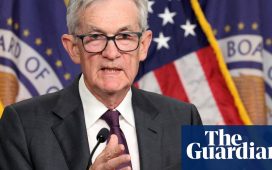
Investing.com — Expectations for a supersized rate cut in September has been running out of steam as recent economic data defogged the economic outlook showing that recession fears were much ado about nothing, but with the labor market now in the monetary policy driving seat, the August jobs report has the potential to revive bets on a big September rate cut.
Labor market now in monetary policy driving seat
“[W]hether the Fed delivers a 50bp cut in September will come down to the August jobs report, out in early September,” Citi economists, led by chief economists Andrew Hollenhorst said in a recent note.
The labor market’s added importance comes as the latest inflation reading suggest a September rate cut is “all but a sure thing”, Citi said, likely shifting inflation to the Fed’s rearview mirror and turning the central bank’s focus to the labor market.
“A third consecutive month of sub-2% annualized core CPI inflation makes a September rate cut all but a sure thing and should keep Fed officials focused on employment and growth,” the economists added.
A 50 basis point rate cut could be sanctioned by Fed officials if the unemployment rate stays at 4.3% or moves higher, Citi estimates, and may even be possible if the unemployment rate drops just 0.1%.
Citi’s call for a bigger cut a further deterioration in the labor market has merit. Fed Chairman Jerome Powell has repeated flagged the increased in focus on the labor market and said the central bank would act if there was unexpected weakening.
“If the labor market were to weaken unexpectedly or inflation were to fall more quickly than anticipated, we are prepared to respond,” Powell said at Jul. 31-Aug.1 FOMC press conference. The fed chief acknowledged that the labor market has cooled and returned to pre-pandemic levels, but said it remained “strong,” but but not overheated.
Was weakness in the July jobs report ‘transitory’?
But those remarks were delivered before the July nonfarm payrolls showed a climb in the U.S. unemployment rate by 0.2% to 4.3%, sparking recession fears and causing many to hit the panic button on stocks.
“The most concerning sign is the rise in the unemployment rate to 4.3% from a low of 3.4%,” Citi said, though the recent jobless claims data, which have been dropping over the last two weeks, raises “expectations that the soft jobs report in July may have been ‘transitory.'”
The reassuring data has raised the odds to about 75% that the Federal Reserve will ease by just 25 basis points in September rather than 50 bps, with odds of the latter now at just 25% compared with 51% in the prior week.
Powell to keep cards close at Jackson Hole
With weeks still to go until the August nonfarm payrolls report due Sept. 6, Powell’s comments at Jackson Hole next week “could also be important in assessing the likely Fed path,” the economists added.
But the Fed Chairman Jerome Powell is expected to keep his monetary policy cards close to his chest as data that will sway policy including the August job report will still be horizon.
“Since the policy action in September depends on data not yet released, Powell is unlikely to provide clear guidance toward a 25bp or 50bp cut,” they added,
But there is a risk that Chair Powell may hint at loosening policy should he signal the need to “more quickly to achieve a neutral setting,” Citi said.









